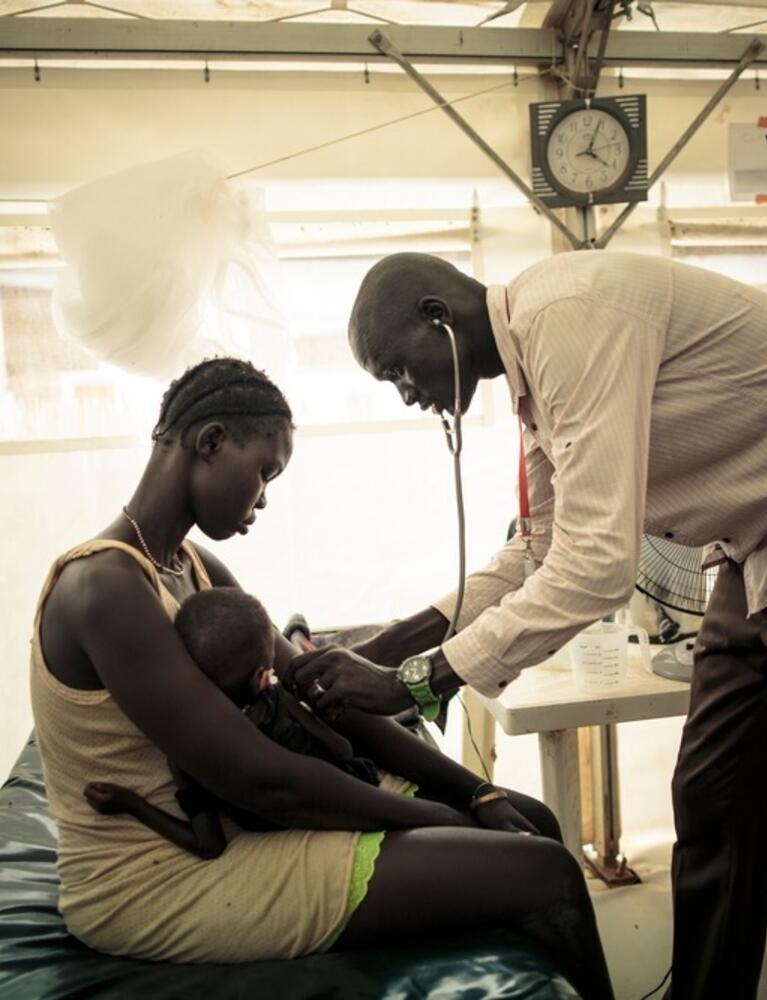EMERGENCY APPEAL: MSF asks donors and international aid organisations to scale up their efforts in addressing the malnutrition crisis in Ethiopia. Read the full article here.
Malnutrition has been identified as the single greatest threat to public health. Its reach is wide and the effects are devastating, but we can do something about it.
Severe acute malnutrition is a key factor in the deaths of more than 3 million children each year. It is a contributing factor in 45% of all child deaths, and it affects 178 million children globally.
Children become malnourished when they are deprived of essential nutrients, causing their bodies to stop growing and waste away. They lose fat first and then muscle, their immune systems weaken, and they become susceptible to diseases.
The circumstances which give rise to malnutrition can be varied – poverty, a poor harvest, war, or lack of education is often to blame. Any one of these factors can have a devastating effect, but all too often they come as a deadly combination.
While the problem may seem highly complex, the treatment of malnutrition is surprisingly simple. Thankfully, Médecins Sans Frontières has discovered over the past decade that large-scale malnutrition can be treated with ready-to-use therapeutic food (RUTF), inpatient feeding centres and education.
Most children treated with RUTF on an outpatient basis recover in just over a month and cure rates usually exceed 90 per cent. A course of RUTF treatment only costs 150 AED and can be consumed without water, removing the risk of contracting waterborne diseases. If MSF staff are concerned that a child may become malnourished, RUTF can also be used as a preventative measure.
MSF works in several countries to treat malnutrition – right now we are concerned with the level of malnutrition in Chad, Nigeria and South Sudan. Please see photo gallery below.

Chad
Malnutrition is endemic in Bokoro, as it is across many other areas of Chad. Almost half of child deaths in the country are associated with the condition. The causes of the crisis are complex but include inadequate harvests, malaria, and a lack of understanding about hygiene and nutrition, cause diarrhoea and in turn malnutrition. In addition, mums often stop breastfeeding babies when they're pregnant with their next child and seek help from traditional medicine due to a lack of access to healthcare.
Across the Bokoro region, MSF is running 15 mobile outpatient clinics for malnourished children between the ages of 6 months and 5 years old. In Bokoro town, it is running an inpatient therapeutic feeding centre with an intensive care unit where the sickest children are referred. For the first time, MSF is also working in the region to prevent children at risk of being malnourished from falling ill.





